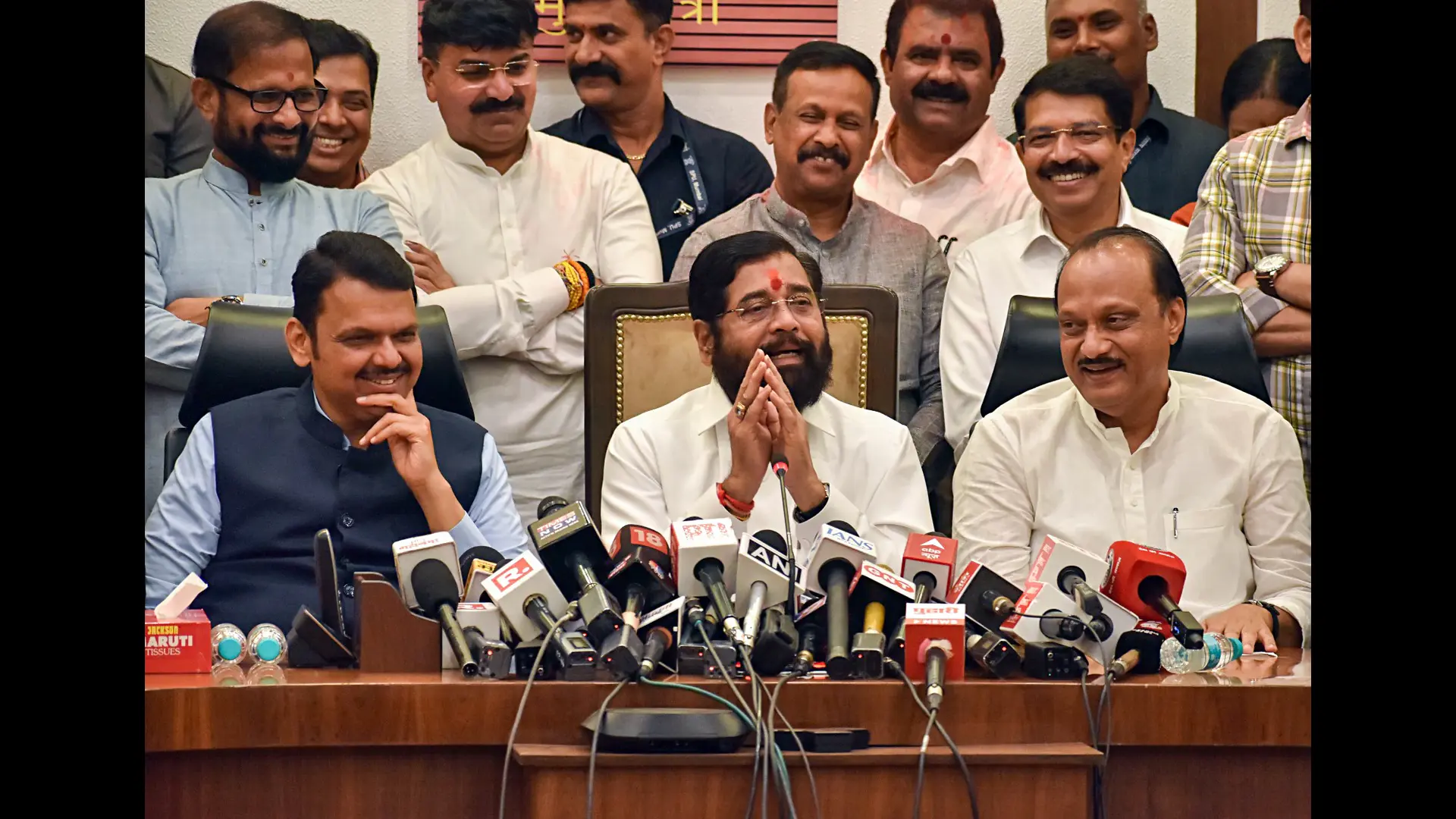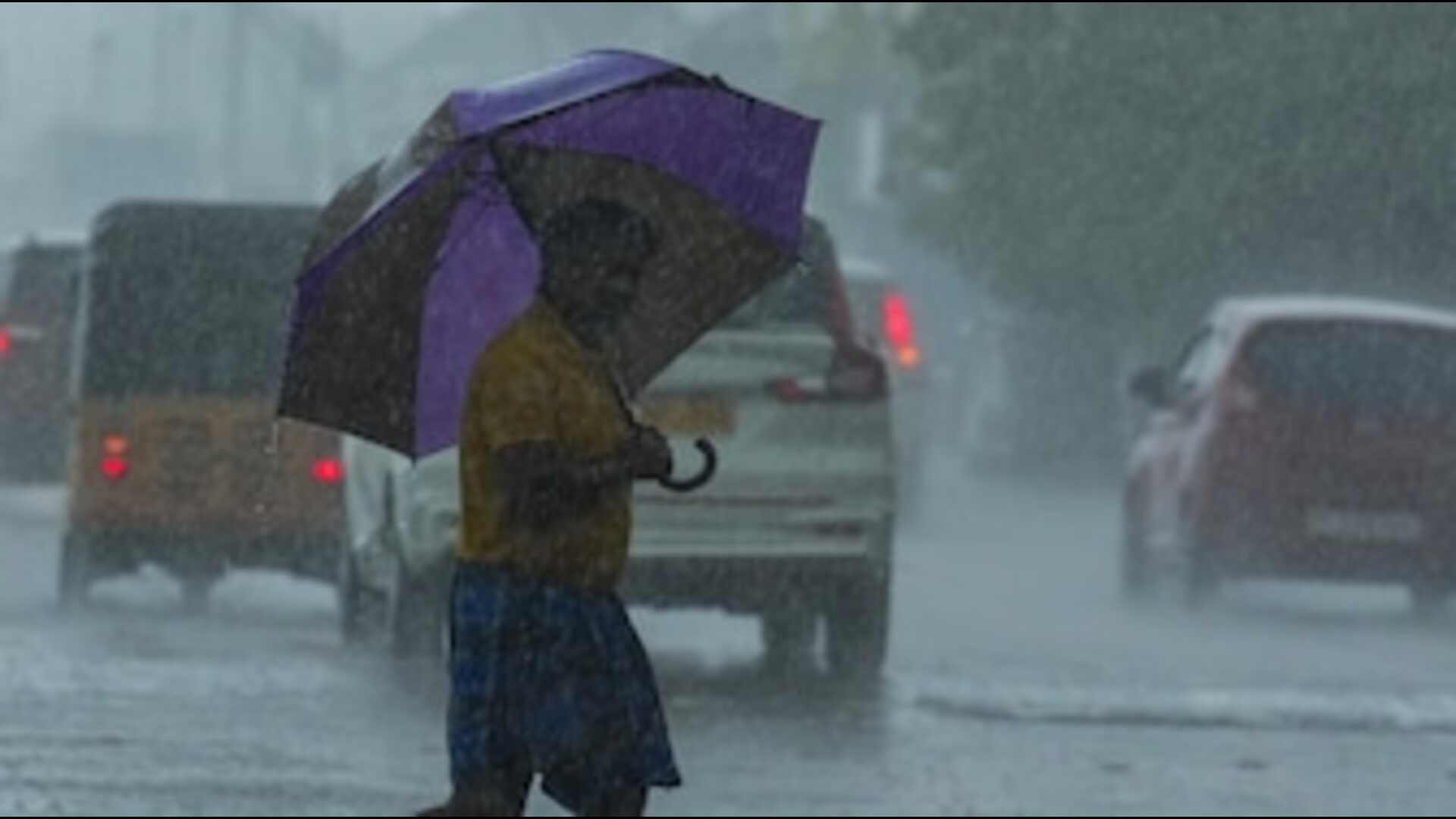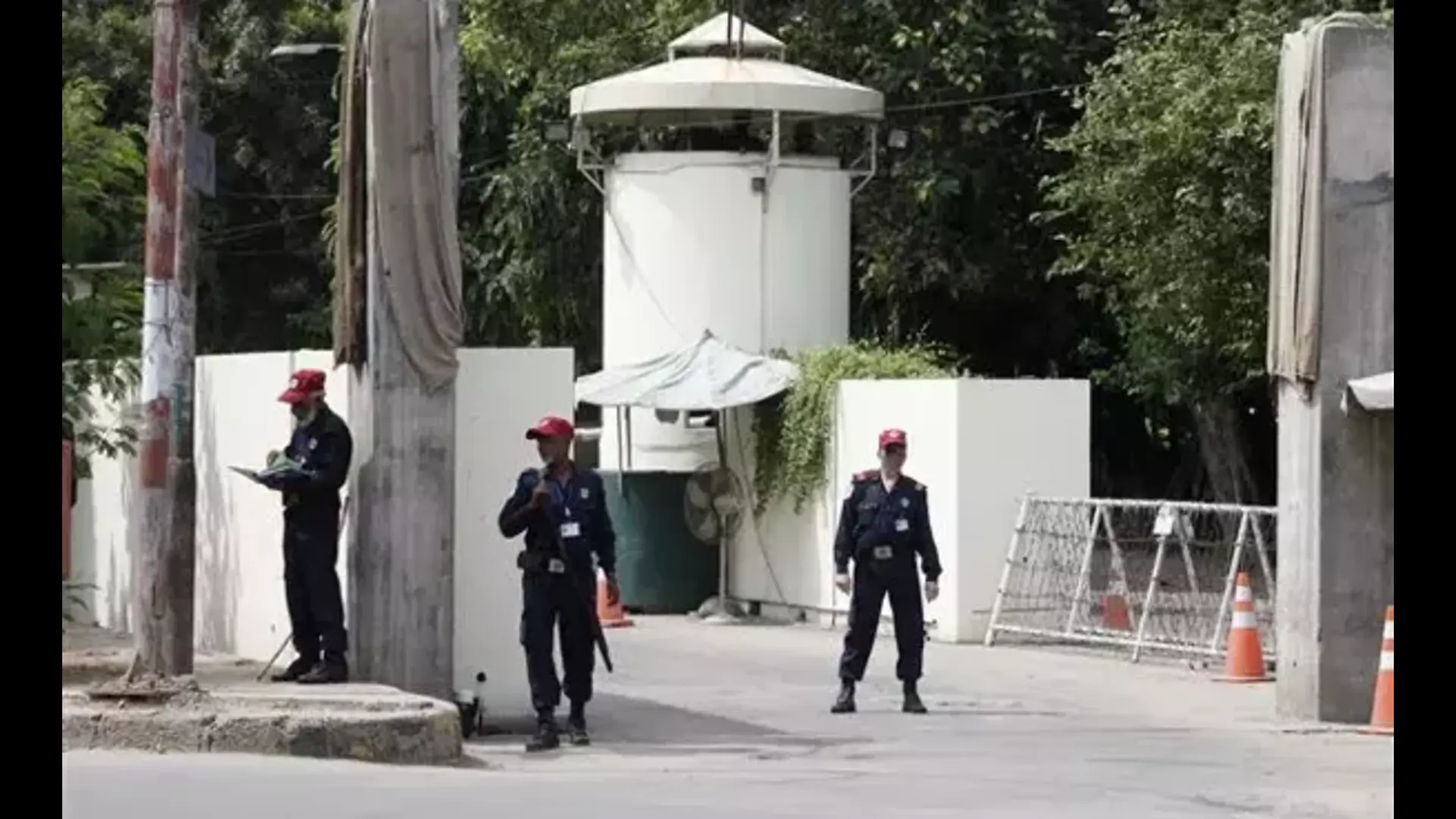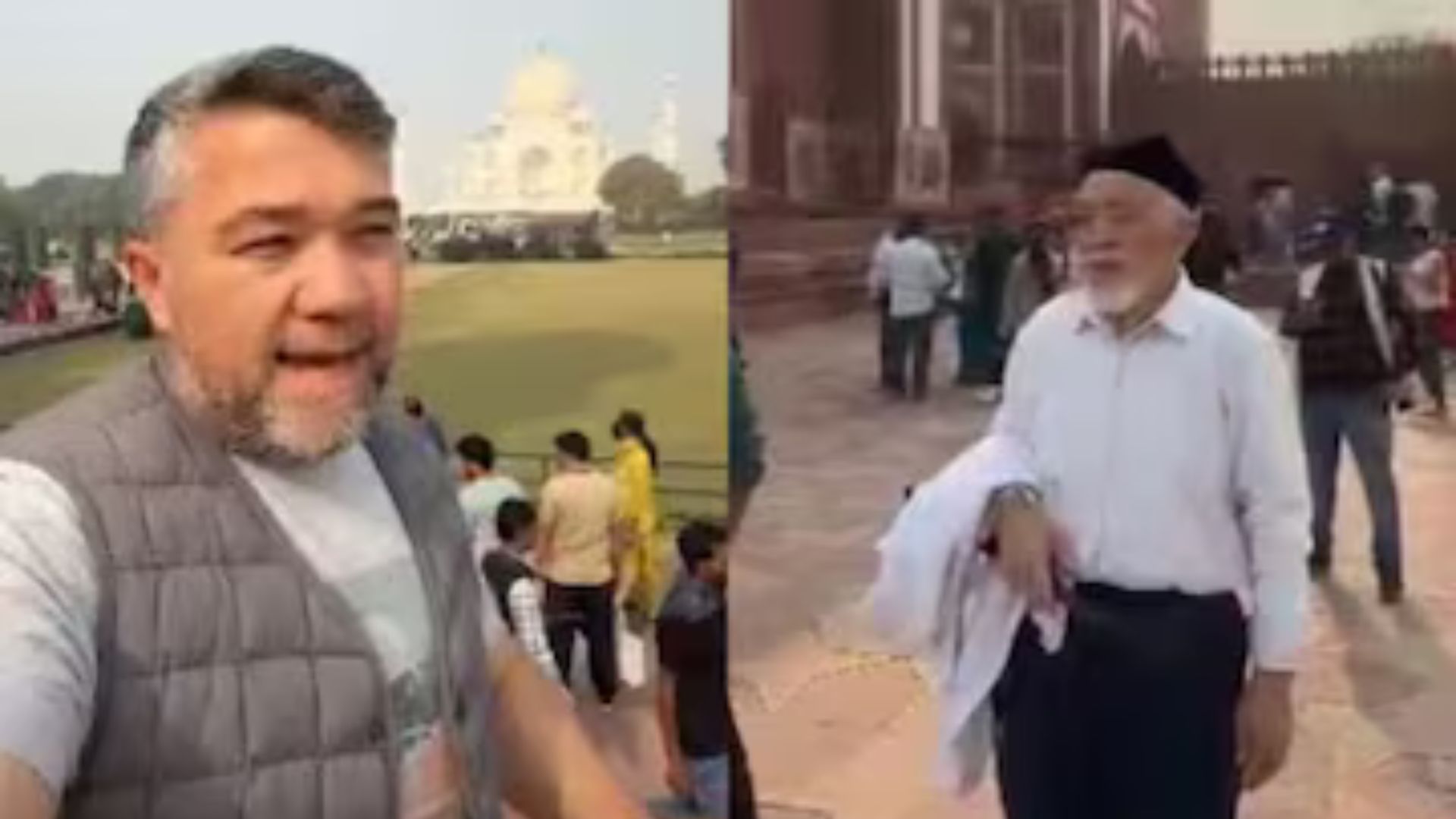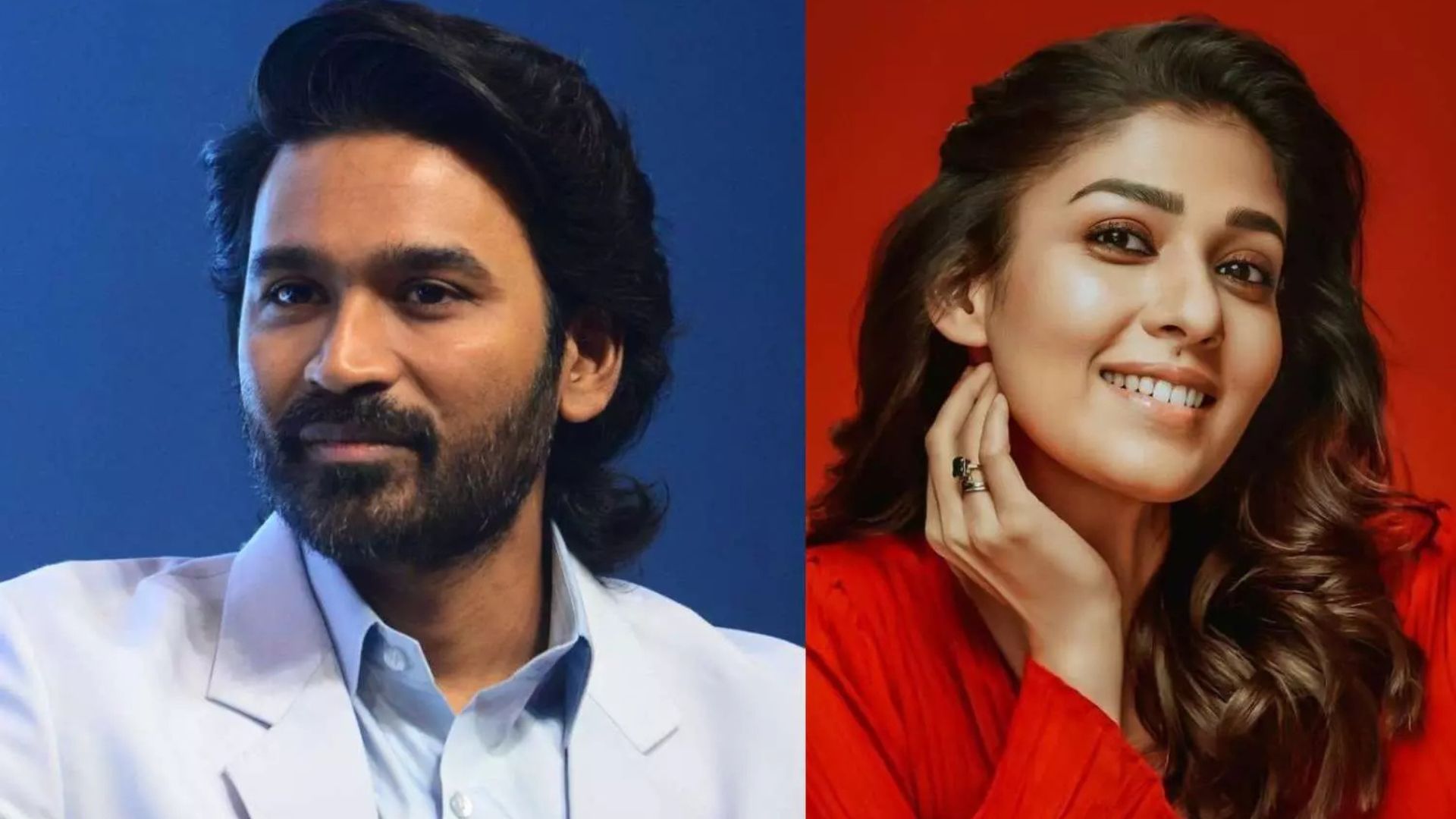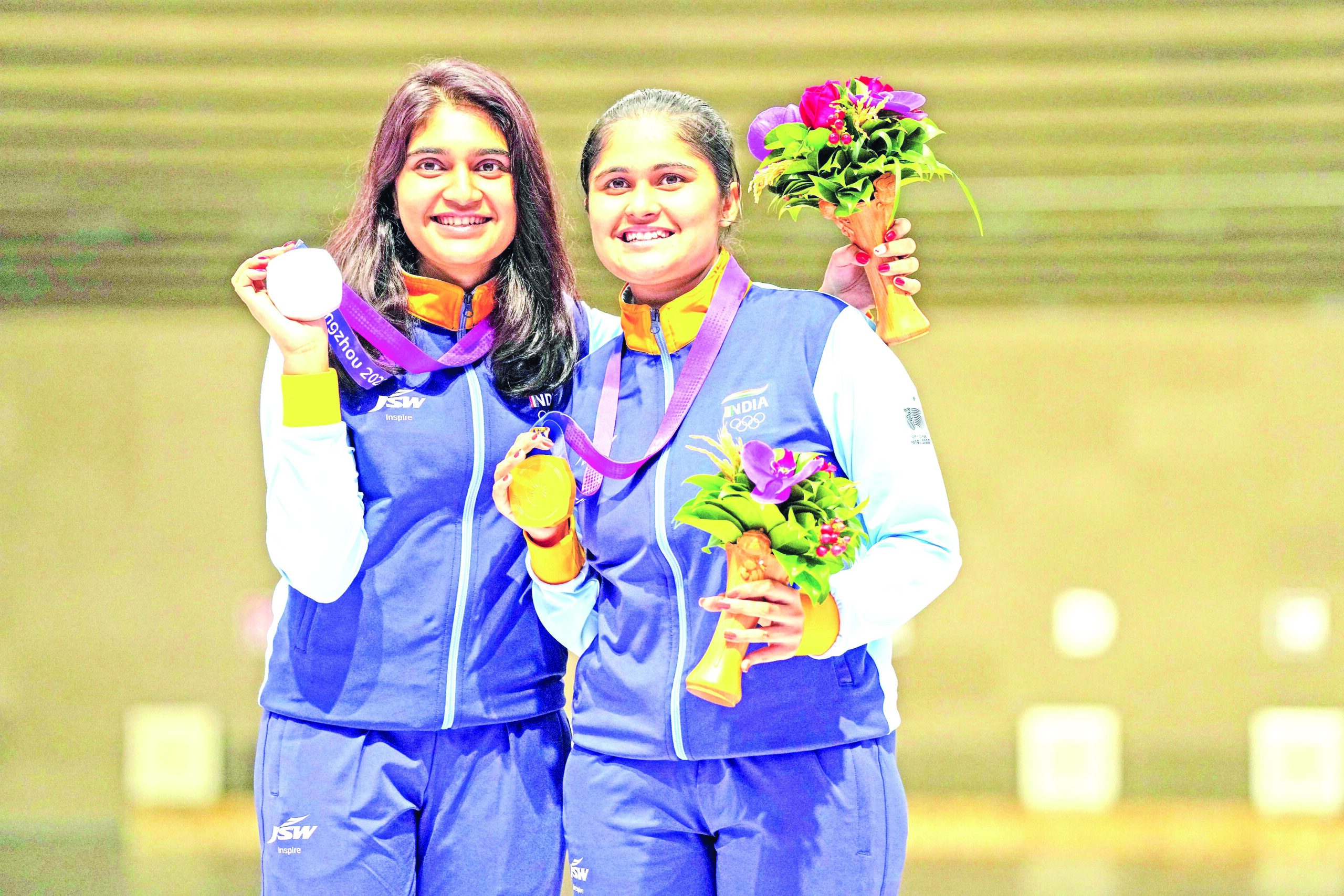
Two teenaged dreamy-eyed shooters, Palak Gulia and Esha Singh, set ablaze the shooting range by powering to a gold-silver finish in 10m air pistol event for India at the Asian Games here on Friday.
In one of the most trailblazing efforts seen by Indian shooters, the duo challenged each other for the top podium finish until 17-year-old Palak clinched the gold medal and Esha the silver to swell the country’s tally in the sport to 17 — six of them gold.
Pakistan’s Talat Kishmala settled for a bronze after giving a tough fight to Esha.
This is the first major individual medal for Palak in an international competition after she came on the shooting scene just last year. She shot 242.1 in the finals for an Asian Games record.
Esha, who had won the individual silver in 25m pistol on Wednesday and was part of the triumvirate that won the 10m air pistol team silver along with Palak and Divya TS earlier on Friday, settled for silver, scoring 239.7.
With an individual score of 242.1 points, Palak not only won the gold, but also established a new Asian Games record in her category, going past China’s record from 2018.
Esha won the silver with 239.7 points, continuing her incredible run as a shooter in Hangzhou with her fourth medal of these games.
Palak also shed light on the ‘war room’ simulation training to prepare for the finals, introduced by Indian shooting high performance director Pierre Beauchamp.
“We have a war room where we do simulation for finals. We play music (like in actual competition) and we think of ourselves playing in the finals.
“In that, we measure our pulse rate, breathing pattern which helps to analyse if we are hyper or we are relaxed, which stage we should always be in during the finals. We have had a lot of sessions like that.”
Elaborating on the simulation training, she said, “We can measure pulse rate and breathing pattern. Our HPD (Beauchamp) has a device, I think he created on his own. That helps us measure our heart beat and our breathing pattern.
“If we are anxious or we are having too many thoughts, the device can measure all these things and with that we can self-regulate. There are methods to self-regulate and we could do it.”
The duration of ‘war room’ simulation would be the entire duration of a final, around 30 to 45 minutes, she said.
“It’s exactly how much the final lasts for, it depends on the event. My event is around 30 minutes. We don’t shoot, we do dry run at that time, we simulate.
“We have camps for simulation training for 10-12 days before coming here or any international competitions. Even we don’t have camps, we can go to the range and we do it after training,” said Palak who trains at Delhi’s Dr Karni Singh Range.

